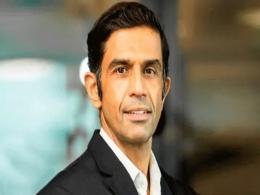Exclusive: India’s Yes Bank and the US based private equity firm Global Environment Fund (GEF) are joining hands for a cleantech fund for South Asia. They are raising a $300 million growth capital fund - South Asia Clean Energy Fund - for investing in clean energy opportunities across the region. The fund will focus on the growth and expansion stage companies in cleantech sector, and India would account for a large part of asset allocation, a top official said.
“We are still in the fund raising process and the first closure is expected soon,” the official told VC Circle. Renewable energy would form bulk of the investments and the rest would go to companies creating energy efficient solutions, he said. The fund will typically look at investing upto $15 million in the companies. The fund will see around 15 investments across the life of the fund, which is expected to generate an IRR of 20-30 percent. However, they will not invest in projects e.g. a wind project or a solar project but would invest in companies.
GEF, set up in 1990, manages $1 billion worth private equity dedicated to clean technology, emerging markets, and sustainable forestry. GEF’s investors include prominent endowments, foundations, family offices, and pension funds. Its India investments include Bangalore based Reva Electric, India’s first electric car, and Tata power. Yes Bank, on the other hand, is India’s youngest bank. The bank has expressed intentions about launching private equity fund focused on SME sector and also food and agro sectors. Yes Bank also has an investment advisory and private equity syndication business.
The source added that the limited partners of the new fund are the traditional LPs of GEF’s previous funds. However, a large chunk of the fund would be raised from North America, which includes pension funds, insurance companies and large global institutional investors.
They have stayed away from HNIs and have focused more on institutions and endowments, who are the typically large LPs. The proposed fund would be predominantly non-domestic; the life of the fund is 10 years – with initial five years dedicated for investing.
Considering that the fund raising environment has become difficult and that the funds are resorting to a change of LPs, they did not see a reason to go outside the conventional LPs.






